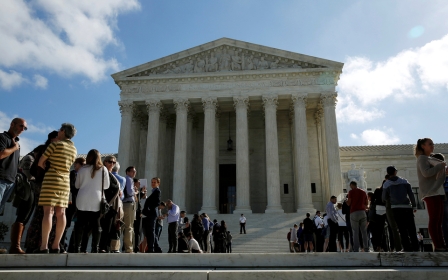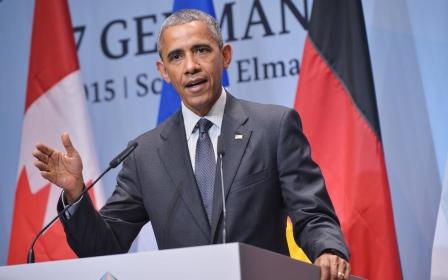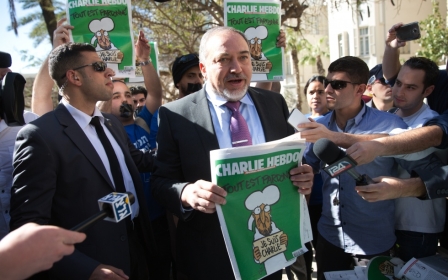US Supreme Court hears case on post-9/11 roundup of Muslims
Muslims in the United States who were rounded up and detained in the immediate aftermath of the 11 September 2001 attacks took their case before the US Supreme Court on Wednesday.
The US high court reviewed whether the men, who say they were held after the al-Qaeda attack based solely on their identity as Arab Muslims, had the right to sue top US officials including then-Attorney General John Ashcroft and Federal Bureau of Investigation Director Robert Mueller, for what they deemed illegal detention.
The men were among 750 Muslims rounded up after the attacks, many on grounds that they did not have legal US immigration papers.
They said they were held in small isolation cells for up to 23 hours at a stretch and subjected to mental and physical abuse. They were held in detention for three to eight months.
A lower court had ruled in the men's favour, and US officials appealed the lower court's decision to the Supreme Court, arguing that national security and immigration requirements at the time justified the sweeping arrests.
The New York-based 2nd US Circuit Court of Appeals ruled in 2015 that Ashcroft and Mueller could be sued, based on a 1971 Supreme Court ruling in a case involving federal drug enforcement agents that allowed such lawsuits in limited circumstances. The court has been reluctant to extend that ruling to other types of conduct.
In 2013, a judge dismissed the claims against them, but allowed some against detention facility officials, including the warden, Dennis Hasty. All the defendants sought Supreme Court review.
A ruling on whether the men had a right to sue rests on court precedents involving constitutional protections against illegal search and seizure.
Initial polarised opinions
Justice Stephen Breyer, one of the court's more liberal judges, got to the heart of the case: whether the atmosphere at the time justified such a broad reaction.
"I can understand after a bomb attack and 3,000 people are killed," Breyer said. "I can understand that the first reaction of the law enforcement authorities is pick up anybody you might think is connected, and we'll worry about the rest of it later."
"Now, eight months? The answer is pick up anybody who might have a connection and then just keep them there?" he asked.
Conservative Supreme Court justices on Wednesday voiced scepticism about allowing legal claims to proceed against Ashcroft.
During arguments in the case, conservative Chief Justice John Roberts expressed concern that permitting such lawsuits against senior US officials would become "a way of challenging national policy" through litigation seeking monetary damages against the individuals who implemented the policy.
Roberts said that would be "an extraordinary departure" from Supreme Court precedents.
"You are asking us to go further," Kennedy told the detainees' lawyer, Rachel Meeropol of the Center for Constitutional Rights legal activist group.
Only six of the eight justices participated in the case, with two of the court's four liberals, Elena Kagan and Sonia Sotomayor, recused. All of the four conservative justices took part.
'Ties to terrorism'?
The current Barack Obama administration came in on the side of Ashcroft, Mueller and the others being sued.
"This is something that was done as the officials are trying to sort through how to respond to the very difficult situation," said Justice Department lawyer Ian Gershengorn.
"Some of the people on the list had ties to terrorism - may have had ties to terrorism. Some of them may well not have," he said.
But officials had to take the time to figure that out, and in the meanwhile did not violate any laws, including those on discrimination," he added.
'Some of the people on the list had ties to terrorism - may have had ties to terrorism. Some of them may well not have' - Ian Gershengorn
Rachel Meeropol, arguing for the men who had been detained, said it was an issue of illegal discrimination.
"This court has a historic role to play in ensuring that race and religion do not take the place of legitimate grounds for suspicion and in deterring future federal officials from creating government policy to do the same," she said.
New MEE newsletter: Jerusalem Dispatch
Sign up to get the latest insights and analysis on Israel-Palestine, alongside Turkey Unpacked and other MEE newsletters
Middle East Eye delivers independent and unrivalled coverage and analysis of the Middle East, North Africa and beyond. To learn more about republishing this content and the associated fees, please fill out this form. More about MEE can be found here.




